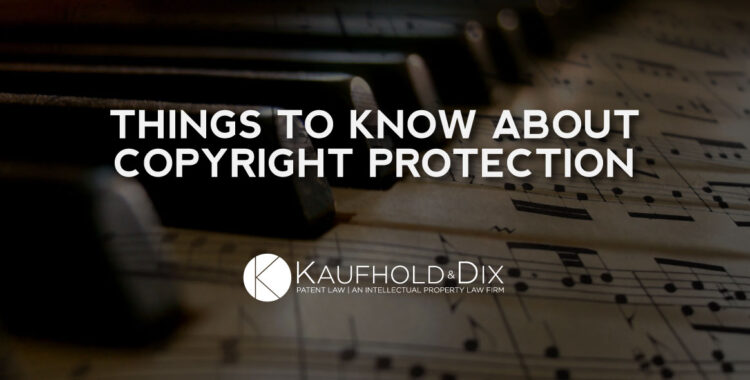8 Things You Must Know About Copyright Protection
You probably already know that copyright infringement is punishable by law in the US. The constitution is very clear that Congress has a responsibility to enact laws and regulations to help creators guard their works and define applicable penalties for infringers.
Specifically, Article I, Section 8 of the Constitution says that Congress must “promote the progress of science and useful arts by securing for limited times to authors and inventors the exclusive rights to their respective discoveries and writings.”
You likely also know that an infringement occurs when an individual or party uses, copies, or distributes copyrighted material without the copyright owner’s permission. The penalty for infringement may be the actual dollar amount of the damage plus profits or, if qualified, an amount set by statute called statutory damages which may exceed the actual dollar amount of the damage or profits. Infringers may also have to pay all attorney fees and court costs.
However, there are a few more things you need to know about copyright law, especially if you’re thinking about copyright protection for your work in the future.
Intellectual Property Playbook
An Entrepreneur's Guide To Patents, Trademarks, and Copyrights GET THE PLAYBOOK
1- What is a copyright?
A copyright is an individual or organization’s exclusive right to reproduce, publish, or sell their original work of authorship, including architectural, literary, musical, and artistic work, among others.
However, the copyright law only covers “form of material expression,” which loosely translates to work that exists. It doesn’t protect concepts, ideas, techniques, or facts. The work must be fixed in a tangible form to receive copyright protection.
2- What does a copyright protect?
The copyright law mainly protects the creator’s right to reproduce their work, prepare “derivative” works (i.e., other creations based on the original work), and freely distribute the original and derivative works (through sale, leases, and transfer of ownership). The creator can also perform and display their works freely.
The copyright law also protects anyone authorized by the copyright owner to exercise the rights above.
3- Trademarks vs. patents vs. copyrights, which is which?
Trademarks are branding elements that distinguish the goods and services of one trader from the next. The most common trademarks are brand names. To obtain a trademark, your logo, slogan, etc., must be different from other competitors in the market. Meanwhile, patents are designed to protect inventions, such as a new chemical composition or piece of machinery. The invention must be something that can be made or used.
Copyrights primarily protect original artistic expressions in four main areas, i.e., arts, literature, drama, and music.
4- Who can register for copyright protection?
Anyone who creates or owns an original work or has obtained ownership rights through an author can register for copyright protection. However, context is key as the definition of “author” may vary from one scenario to the next.
For instance, if the work is created during the scope of employment, it is considered “work made for hire.” Therefore, the employer, not the employee, is considered the author. Also, a piece of work created jointly by people has two co-authors, unless they agree to the contrary.
5- Can I assign/transfer copyright ownership?
Yes, you can transfer all or part of the rights in a copyrighted work to another person or party for the full duration of the rights or a specified period. The transfer must be in writing and signed by the owner or an authorized agent. The only exception is when transferring rights on a non-exclusive basis. Keep in mind that an exclusive license is essentially a copyright transfer.
Transfer agreements are often notarized to limit challenges to the validity of a party’s signature or the transfer itself in the future.
6- Do I have to register with the US Copyright Office to be protected?
No. You’re not obligated to register with the US Copyright Office to be protected as all original works are protected in the law. Registration is entirely voluntary but is required before you can take steps to enforce your copyright through the courts.
7- If copyright protection is automatic, why do I need a lawyer?
Official registration comes with several valuable benefits. First off, registering for copyright protection allows you to have the copyrighted material on the public record. You’ll even get a certificate of registration.
More importantly, only registered works are eligible for statutory damages and attorney fees following an infringement lawsuit. Copyrights registered within 3 months of publication of the work can result in statutory damages even if the infringing use occurred prior to the registration.
8- Is my copyright good in other countries?
Not necessarily. The US government has copyright agreements with many countries globally to honor each other’s citizen’s copyrights. Unfortunately, we don’t have such relations with all countries. As a result, your copyrights will be honored in some countries but not others.
The complete list of countries with which the US has copyright relations and the nature of the agreements are contained in Circular 38a.
Summary
You should probably also know that copyright protections last the creator’s life plus an additional 70 years. For more information on copyrights, infringement laws, and other details, visit the U.S. Copyright Office website.






